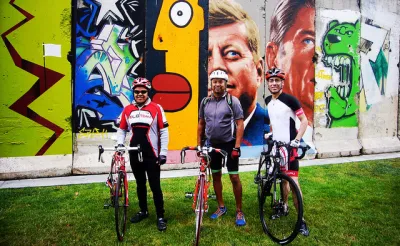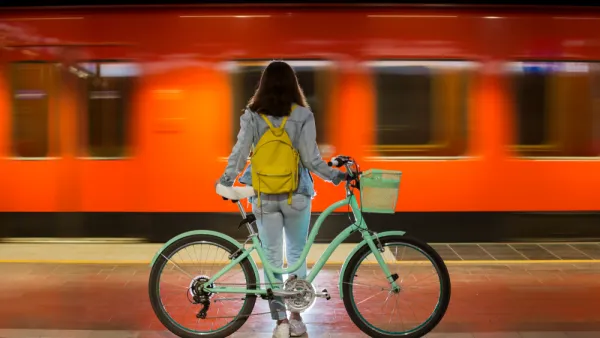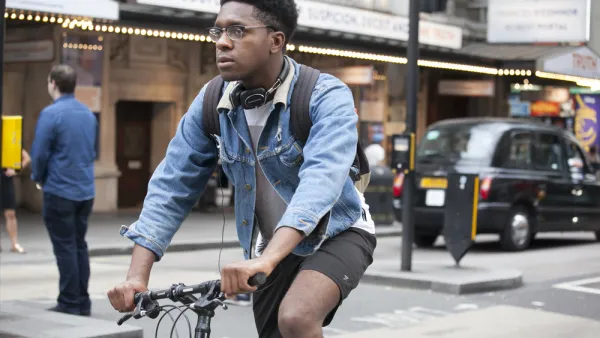A new study by researchers from Harvard University addresses bike equity, which is a powerful tool for increasing access to transportation and reducing inequality in U.S. cities

Ann Lusk writes in The Conversation to describe research she completed with colleagues at Harvard's T.H. Chan School of Public Health:
Many U.S. cities have improved marginalized neighborhoods by investing in grocery stores, schools, health clinics, community centers, libraries and affordable housing. But when it comes to bicycle infrastructure, they often add only the easiest and least safe elements, such as painting sharrows – stencils of bikes and double chevrons – or bike lane markings, and placing them next to curbs or between parked cars and traffic. Cycle tracks – bike lanes separated from traffic by curbs, lines of posts or rows of parked cars – are more common in affluent neighborhoods. Compared with white wealthier neighborhoods, more bicyclists in ethnic-minority neighborhoods receive tickets for unlawful riding or are involved in collisions. With access to properly marked cycle tracks, they would have less reason to ride on the sidewalk or against traffic on the street, and would be less likely to be hit by cars.
FULL STORY: Bike-friendly cities should be designed for everyone, not just for wealthy white cyclists

Analysis: Cybertruck Fatality Rate Far Exceeds That of Ford Pinto
The Tesla Cybertruck was recalled seven times last year.

National Parks Layoffs Will Cause Communities to Lose Billions
Thousands of essential park workers were laid off this week, just before the busy spring break season.

Retro-silient?: America’s First “Eco-burb,” The Woodlands Turns 50
A master-planned community north of Houston offers lessons on green infrastructure and resilient design, but falls short of its founder’s lofty affordability and walkability goals.

Test News Post 1
This is a summary

Analysis: Cybertruck Fatality Rate Far Exceeds That of Ford Pinto
The Tesla Cybertruck was recalled seven times last year.

Test News Headline 46
Test for the image on the front page.
Urban Design for Planners 1: Software Tools
This six-course series explores essential urban design concepts using open source software and equips planners with the tools they need to participate fully in the urban design process.
Planning for Universal Design
Learn the tools for implementing Universal Design in planning regulations.
EMC Planning Group, Inc.
Planetizen
Planetizen
Mpact (formerly Rail~Volution)
Great Falls Development Authority, Inc.
HUDs Office of Policy Development and Research
NYU Wagner Graduate School of Public Service




























